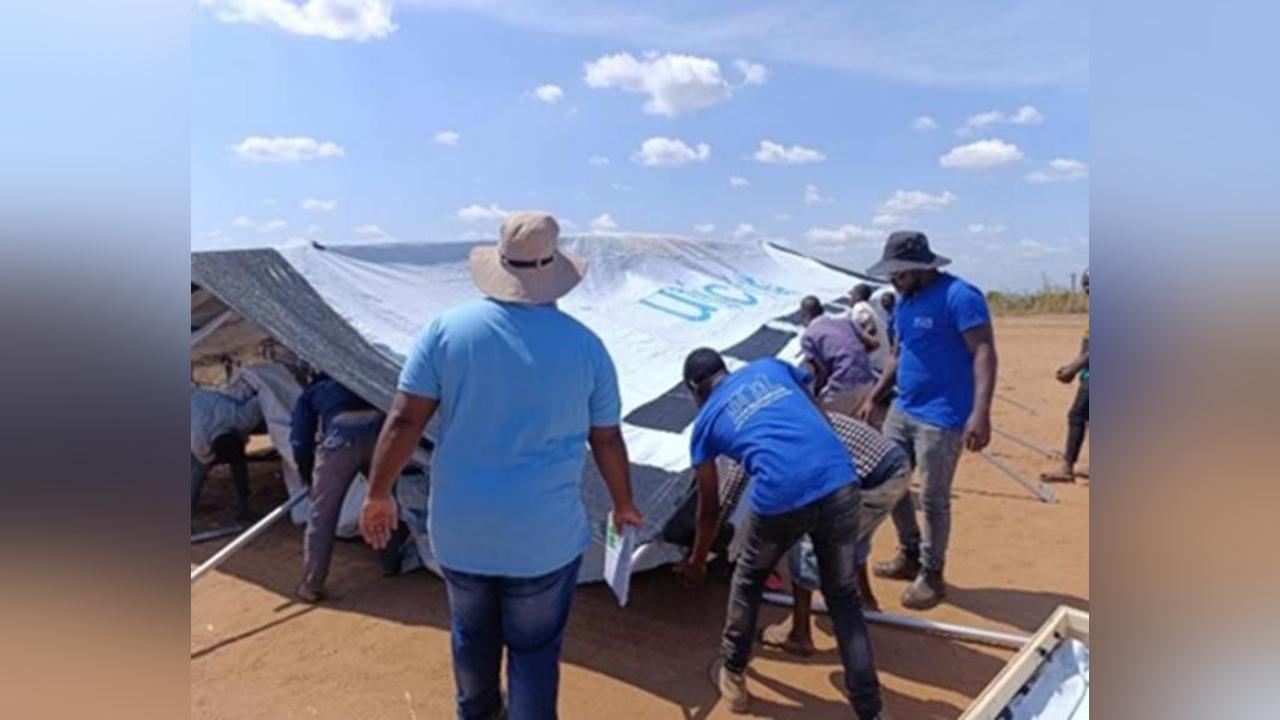Africa-Press – Mozambique. Situation Overview
The spate of attacks in Chiure from 24 July to 03 August, led to the displacement of 51,959 people/12,303 families from 14 villages who sought safety in Chiure sede. In addition, over 5,200 people were reported to be displaced to Ocua and Chiúre Velho and could not be verified because of access constraints. A staggering 60 per cent of the IDPs are children, with cases of unaccompanied and separated children recorded in the two transit sites. Women, pregnant women, people with disabilities and the elderly are also among the most vulnerable.
Health authorities warned that the high IDP population density and limited access to sanitation and healthcare may contribute to a surge in public health risks with the following cases reported in the transit site: malaria (700 cases); diarrhea (179 cases); dysentery (8 cases); conjunctivitis (32 cases); scabies (60 cases). A measles outbreak in neighboring Memba in Nampula province also poses a serious threat of cross-district transmission, but this may be mitigated by the vaccination campaign that concluded in the first quarter of 2025.
Following the distribution of the survival kits from the rapid response instruments of the UN and NGO, the IDPs have since vacated the transit centers and are staying in the communities in an around Chiure sede, while some were reported to have returned home. Local authorities, with support of IOM-DTM, are verifying the number of IDPs who are staying in the communities.
Years of exposure to violence and displacements are taking a toll on the physical, psychological, and social well-being of affected populations. Humanitarian partners report a severe mental health and psychosocial crisis in Chiúre with close to 80 per cent of the displaced people experiencing psychological distress. The MHPSS Technical Working Group, through local NGOs APROCOSO and IPPM highlighted critical gaps, including insufficient service coverage, lack of trained professionals, and absence of safe spaces for care that have left most IDPs excluded from any specialized psychological support. Untreated trauma is increasing vulnerability to radicalization and recruitment by non-State armed groups. Women in Megaruma report no support since arrival, while men express fear and reluctance to return home. Existing district health staff lack the clinical expertise needed to address complex trauma cases.
Humanitarian Needs, Response & Gaps
The rapid response instruments of the NGO (RRM) and UN (JRP) have assisted 11,754 families out of the 12,303 displaced families through the immediate delivery of food, WASH, shelter/NFI kits, dignity kits, health, and protection services. It must be noted however that the rapid response survival packages, especially food rations, are only for two weeks raising concerns about food insecurity if follow-up distributions are delayed or access to livelihoods are not provided.
The rapid response has been supplemented by the provision of services in the transit and relocation sites, including health, nutrition, protection (including child protection and GBV), and WASH. Communal shelter, is being provided in the two IDP sites in use. These services must, however, be scaled up and sustained.
Complementary funding has been mobilized through a US$4 million CERF Rapid Response allocation to support multi-sectoral interventions in CCCM, Food Security, Shelter/NFIs, WASH and Protection. A US$200,000 allocation from the Mozambique Humanitarian Fund was also released to one national NGO to cover a small project in Food Security and WASH.
Clusters and their partners continue to take stock of available in-country resources and are mobilizing existing capacities to scale up and sustain assistance to the IDPs in the communities.
For More News And Analysis About Mozambique Follow Africa-Press






